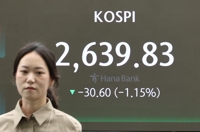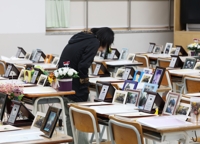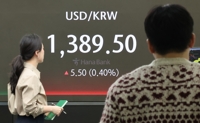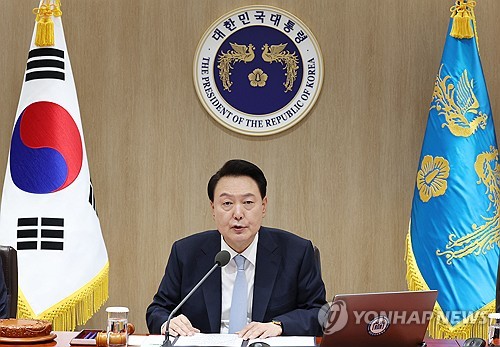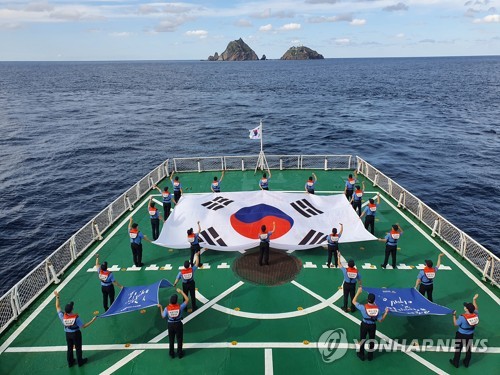(2nd LD) 2018 budget bill submitted to parliamentary floor
(ATTN: CHANGES photo, headline, lead; UPDATES throughout with new info)
SEOUL, Dec. 2 (Yonhap) -- The government's spending plan for next year was submitted to a parliamentary plenary session Saturday amid a political deadlock over a set of sticking points, including proposed overlays for job creation.
Under Thursday's cross-party agreement, the automatic submission proceeded, making the 2018 budget plan worth 429 trillion won (US$395 billion) ready for a floor vote.
It was originally set to be tabled at the plenary session on Friday, but rival parties postponed it until noon Saturday to secure more time for negotiations.
With the constitutional deadline for the budget passage set for Saturday, the parties scrambled to reach a compromise over the bill, which is vital to bankroll President Moon Jae-in's priority policies to create jobs, enhance public welfare and prop up economic growth.
The floor leaders and policy chiefs of the ruling Democratic Party, main opposition Liberty Korea Party and People's Party engaged in grueling last-minute negotiations, but have yet to reconcile their differences.
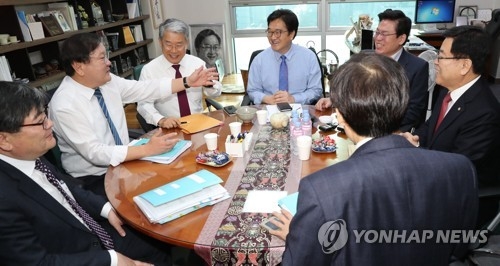
Top officials from the three major parties hold talks to narrow differences over the government's 2018 budget plan at the National Assembly in Seoul on Dec. 2, 2017. (Yonhap)
Through days of negotiations, some progress has been made on disputed proposals such as those involving inter-Korean cooperation funds, health insurance and basic pension schemes.
Major bones of contention are a proposal to use 534.9 billion won to support Moon's push to create 174,000 new public service jobs by 2022 and the 3 trillion won plan to bankroll next year's minimum wage increase.
The minor opposition People's Party vehemently opposes the job growth plan, warning it would impose an undue burden on future generations.
The passage of the budget plan requires the cooperation of the People's Party, which has 40 lawmakers, as the ruling party has only 121 parliamentary seats, far short of a majority in the 299-member unicameral legislature.
Voicing frustration at the political impasse, Woo Won-shik, the ruling party's whip, stressed that the "essence of the budget plan" should not be damaged during the negotiations.
"I believe the parties must meet the legal deadline (for the budget passage) in a way that does not undermine the essence of the spending plan," Woo told reporters.
Asked if his party would press ahead with a vote on the bill should the negotiations fail, Woo remained skeptical.
"Then, the bill would be voted down. Why would we want to go through that unnecessary process?" he said.
Chung Woo-taik, the floor leader of the Liberty Korea Party, called for the ruling party to exert "flexibility" in the negotiations.
The presidential office Cheong Wa Dae called on the rival parties to show "spirits of cooperative politics," noting that the bill concerns citizens' livelihoods and represents the president's philosophy for statecraft.
If the parties fail to meet the Saturday deadline with negotiations prolonged beyond the Jan. 1 start of the fiscal year the government would have to devise a provisional budget that can be used only for mandatory expenditures as stipulated by law.
sshluck@yna.co.kr
(END)
-
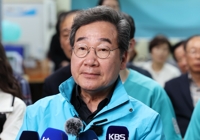 Ex-PM suffers crushing defeat
Ex-PM suffers crushing defeat -
 Defense chief says N. Korea's hypersonic missile 'unsuccessful' in last-stage glide flight
Defense chief says N. Korea's hypersonic missile 'unsuccessful' in last-stage glide flight -
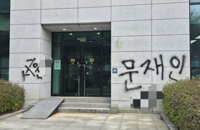 Man in his 40s nabbed for spray-painting slurs toward ex-President Moon
Man in his 40s nabbed for spray-painting slurs toward ex-President Moon -
 Police catch 1,681 over alleged election law violations
Police catch 1,681 over alleged election law violations -
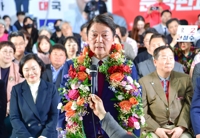 PPP lawmaker says entire Cabinet should resign over general elections defeat
PPP lawmaker says entire Cabinet should resign over general elections defeat
-
 Defense chief says N. Korea's hypersonic missile 'unsuccessful' in last-stage glide flight
Defense chief says N. Korea's hypersonic missile 'unsuccessful' in last-stage glide flight -
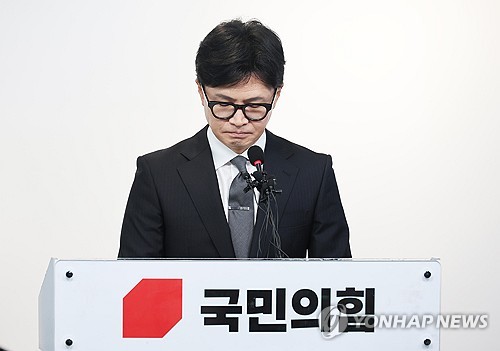 Ruling party leader resigns following election defeat
Ruling party leader resigns following election defeat -
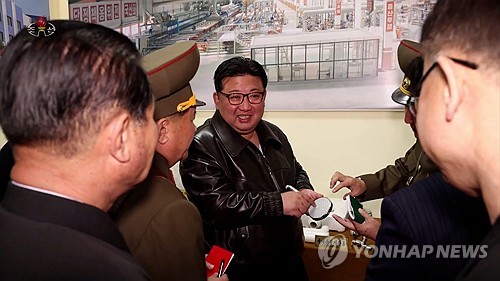 N.K. leader vows to deal 'death-blow' to enemy in event of confrontation: KCNA
N.K. leader vows to deal 'death-blow' to enemy in event of confrontation: KCNA -
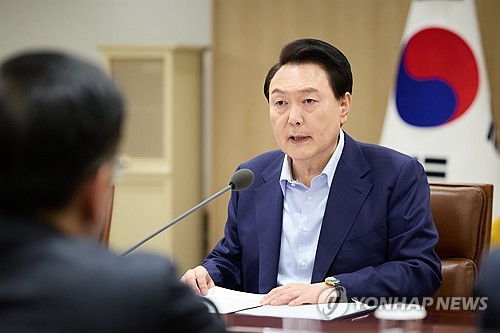 Yoon presides over emergency meeting on Mideast crisis
Yoon presides over emergency meeting on Mideast crisis -
 (LEAD) S. Korea to extend fuel tax cut through June amid Middle East tensions
(LEAD) S. Korea to extend fuel tax cut through June amid Middle East tensions
-
 N. Korea has capability to genetically engineer biological military products: U.S. report
N. Korea has capability to genetically engineer biological military products: U.S. report -
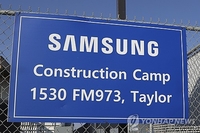 (3rd LD) U.S. unveils US$6.4 bln in CHIPS Act grants to Samsung Electronics
(3rd LD) U.S. unveils US$6.4 bln in CHIPS Act grants to Samsung Electronics -
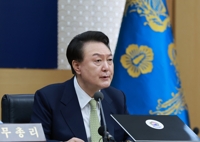 (LEAD) Yoon to address election defeat Tuesday
(LEAD) Yoon to address election defeat Tuesday -
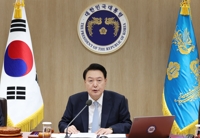 (LEAD) Yoon vows to improve communication with people after election defeat
(LEAD) Yoon vows to improve communication with people after election defeat -
 (LEAD) S. Korea 'strongly' protests Tokyo's renewed claims to Dokdo, calls in Japanese diplomat
(LEAD) S. Korea 'strongly' protests Tokyo's renewed claims to Dokdo, calls in Japanese diplomat















